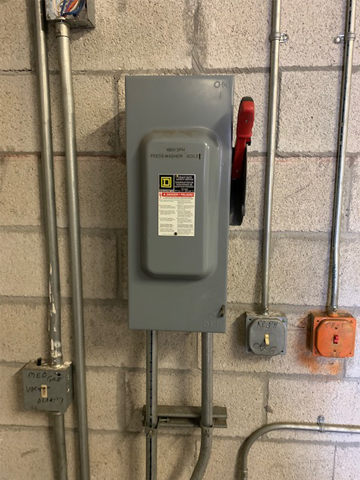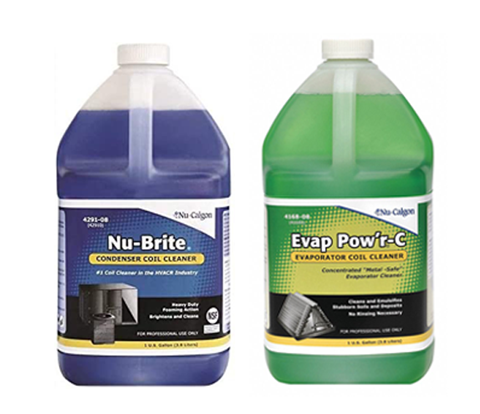How to Clean Commercial HVAC Coils
Ensuring your HVAC coils are kept clean is vital for maintaining optimal performance and extending their lifespan. Dirty coils can increase energy consumption by up to 30%. Therefore, we suggest implementing a regular coil-cleaning routine right from the start when installing new equipment. It might not always feel enjoyable, similar to visiting the dentist, but it’s essential for long-term health. HOW TO IDENTIFY DIRTY COILS Scheduling routine maintenance is the best way to keep track of coil cleanliness. However, there are some signs you can look out for if you suspect your coils need attention: • Check the design air pressure drop across the coil compared to its specifications. A dirty condenser coil will show high refrigerant head pressure, whereas a dirty direct expansion (DX) coil may exhibit low suction pressure and poor airflow. Both scenarios indicate a higher-than-design air pressure drop, suggesting it’s time to clean the coil. • A visual inspection can also help. If the coil looks dirty, it probably is. Simple yet effective advice! FREQUENCY OF COIL CLEANING Under normal conditions, a DX evaporator coil or condenser coil should be cleaned annually. During peak cooling seasons or in environments prone to dust accumulation, such as areas with cottonwood fluff buildup, cleaning should occur more frequently. Coils with a high fin density are particularly susceptible to dirt accumulation and require more regular maintenance. Extreme Conditions: For a condenser coil operating under extreme conditions, quarterly cleaning is recommended. Near Saltwater: Units located within a mile of saltwater should be cleaned monthly. Coils Taking Outside Air: DX evaporator coils exposed to potentially corrosive environments near the exterior should be cleaned quarterly. THE COIL CLEANING PROCESS Before beginning, ensure the electrical power is disconnected and locked out to avoid accidental activation of the unit. Be cautious about avoiding saturation of motors and electrical components, which could lead to motor or electrical failure. Start by removing large debris and straightening bent fins. When cleaning, use a pressure washer with a nozzle between 25 and 40 degrees to prevent bending the aluminum fins. Opt for non-acidic, alkaline-based cleaners like Nu-Brite for condenser coils and Evap Pow’r-C for evaporator coils. These cleaners have foaming properties that help draw out debris from inside the coils. If an acidic cleaner is necessary, follow the instructions precisely and ensure all residue is thoroughly rinsed away afterward. Acidic cleaners carry risks and can easily damage the coil if mishandled. In cases where a gentle scrubbing is needed, use a soft-bristle brush only. Afterward, rinse the coils thoroughly using a power washer or hose. Failure to adhere to these guidelines or the manufacturer's instructions regarding cleaning chemicals could result in damage to the unit. Extreme care should be taken with any caustic or toxic chemicals to prevent injury or equipment damage. STEAM CLEANING FOR INTERIOR COILS For coils located indoors, using a steam system offers an efficient way to clean without making a mess. While you won’t need the aforementioned cleaners, still be mindful not to over-saturate the motor or electrical components. Use steam at low pressure and keep the stream parallel to the fins to avoid bending them. Remember, prevention is key here—regular cleaning will save you headaches down the line. MAINTENANCE IS KEY With proper upkeep, commercial HVAC coils can last a long time. Typically, condenser coils last 10 to 15 years, DX evaporator coils last 15 to 20 years, and water coils exceed 20 years. High-quality replacement coils can match or even surpass the lifespan of original equipment manufacturer (OEM) coils by enhancing material thickness. However, remember that the physical location of the coil and surrounding environmental factors—whether natural or man-made—can significantly impact its lifespan. WHAT ABOUT COATED COILS? Coated coils offer protection against corrosion from various contaminants. Despite this coating, coils can still accumulate dirt and become blocked. Therefore, it’s crucial to treat coated coils the same as uncoated ones. Maintaining the coating ensures it continues to provide effective corrosion resistance for years. QUESTIONS OR NEED A QUOTE? Have a question about coils or need a quote? Feel free to reach out to us anytime. We’re here to help! Hawaii Foam Flower Hair Clip,Silk Flower Hair Clip Hairpin,Plumeria Flower Hair Clip Xuzhou Kylin Craft & Gifts Co., Ltd. , https://www.kylincraftandgifts.comThe Importance of Cleaning Commercial HVAC Coils


Written by: Stephen Barzelatto
Vice President of Nationwide Coils
